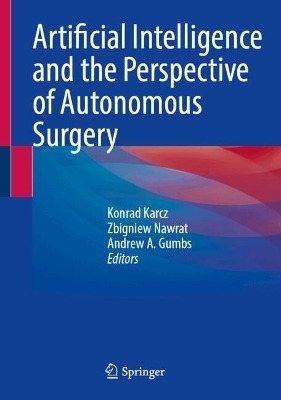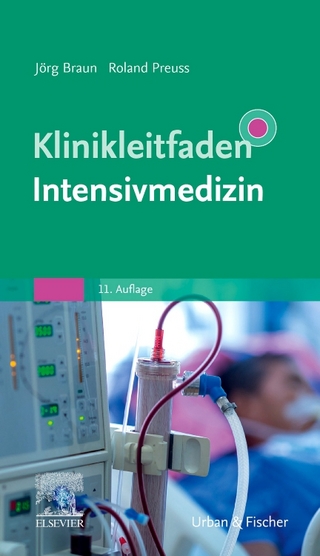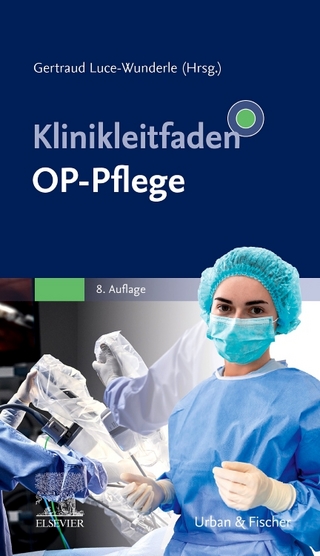
Artificial Intelligence and the Perspective of Autonomous Surgery
Springer International Publishing (Verlag)
978-3-031-68573-6 (ISBN)
- Noch nicht erschienen - erscheint am 14.01.2025
- Versandkostenfrei innerhalb Deutschlands
- Auch auf Rechnung
- Verfügbarkeit in der Filiale vor Ort prüfen
- Artikel merken
This book has two heroes - the surgeon and the robot. The education system and intelligence can create a human who is specialized in surgery. While the accurate analysis of data with machine learning, AI, can create a more autonomous robot for surgery. Currently, robots still require human input in the decision-making loop, whether or not this will always be the case is an issue that still needs to be debated, analyzed and studied, preferably by computer scientists AND surgeons.
Surgeons and their patients are increasingly opting for less invasive surgeries. However, among their many advantages, there is an important issue: less invasiveness always means limited access to direct information from the operating field (3D image, local palpation sensations, all information about the "whole" patient and feedback from the accompanying team during teleoperation). To increase precision, we are increasingly using surgical robots and mechatronic instruments. The less invasive the surgery and the greater the precision of robotic micro-instruments, the greater the role of artificial intelligence methods, especially machine learning, which supports the surgeon in making decisions, planning and performing the procedure.
The development of artificial intelligence and further evidence of its effectiveness in various application fields mean that the work of a doctor is changing today. In the book, we address the issue of AI surgery, asking whether this means that an AI surgeon will be created? A key question about autonomous surgical robots will come up regularly: how far can we go with their autonomy while maintaining safe and effective procedures?
The book provides useful information on both early successes, failures, and expectations related to the development of new technologies in surgery. It is a guide written by various experts, intended for a wide audience: from medical development planners, through students, to doctors and decision-makers.
Konrad W. Karcz, MD, PhD, PHM Professor of Surgery, Professor of Medicine
Prof. Dr. Konrad W. Karcz is a highly qualified surgeon, specializing in general, aesthetic, micro, oncological, minimally invasive, and robotic surgery. He currently works at the Clinic for Plastic, Reconstructive, and Hand Surgery with the Burn Center at Klinikum Nürnberg and is associated with the Ludwig Maximilian University in Munich, Germany. Prof. Karcz has gained extensive experience in both traditional and minimally invasive surgery at renowned institutions worldwide. He completed his medical degree at the Silesian Medical University in Katowice (Poland), gained experience at Cornell University in New York (USA), and habilitated at the Albert Ludwig University of Freiburg (Germany). He has held a W2 professorship at the University of Schleswig-Holstein and actually has professorship at the Ludwig Maximilian University. In addition to his medical qualifications, Prof. Karcz has substantial management training from the Silesian University of Economics in Katowice (Poland) and Harvard University in Boston (USA). These skills are essential for leading teams and executing complex projects successfully. Prof. Karcz has been twice awarded the title of Doctor Honoris Causa by David Agmashenebeli University and Grigol Robakidze University in Georgia. In 2018, he received a nomination from the President of the Republic of Poland for the title of Professor of Medicine in recognition of his scientific and educational achievements. His recent accolades include the Karl Storz Prize from the German Surgical Association (2019), the Gold Medal from David Agmashenebeli University in Georgia (2019), and the German Medical Awards (2020). Through international cooperation, he supports various scientific institutions and organizations.
Zbigniew Nawrat PhD, scientist, inventor, teacher, visionary. He is theoretician physicist by profession (University of Silesia Degree in 1984), who the own whole professional activity associated with the medicine (Doctorate of Medical Academy of Silesia in 1997 - subject artificial heart, 2013 habilitation - subject medical robotics). He is an author of pioneer researches in artificial organ domain, especially heart prostheses. Polish ventricular assist device POLVAD was first clinically applied in 1993. He is a father of cardiac surgery robot Robin Heart - which is a first Polish and European telemanipulator for heart surgery (licenses for one of the Robin Heart models PVA were sold in 2019). He is also a pioneer of application the computer simulation & virtual space technology to surgical planning process. Zbigniew Nawrat works in Medical University of Silesia (ass. prof. in Biophysics Department) as well as in Foundation of Cardiac Surgery Development as Creative Director now. He is a member of Biomechanics section and Biomaterials section of Polish Academy of Sciences. He is an organizer of many conferences and workshops e.g. BioMedTech Silesia, Surgical Workshop, Medical Robots. He founded the International Society for Medical Robotics in 2010 - president till now. He created and publishes (editor) the journal Medical Robotics Reports. Hobby: Poet, composer, musician, sailor. He released the music album "Rok dobrego czlowieka" ("A Year of Good Man") by ZAWRATU.
Andrew Gumbs MD, PhD, Full Professor of Surgery. He is by profession General-, oncological-, minimally invasive- and robotic trained surgeon. He is currently the Chief Surgical Officer at the American Hospital Tbilisi in Georgia. Professor Gumbs was previously Director of the Minimally Invasive Hepatic-Pancreatic-Biliary Surgery Program at SMG-MD Anderson Cancer Center and prior to that the Director of Minimally Invasive Hepatobiliary Surgery and at Fox Chase Cancer Center in Philadelphia, Pennsylvania. He has been Instructor of Clinical Surgery at Cornell-Weill Medical College, Instructor of Clinical Surgery at Colu
PART ONE: FUNDAMENTALS OF ARTIFICIAL INTELLIGENCE SURGERY.- 1.1.- Medical Robots and Minimally Invasive Surgery driven by Artificial Intelligence - MR&MIS AI.- 1.2. Importance of the Data in the Surgical Environment.- 1.3. The challenges of deep learning in artificial intelligence and autonomous actions in surgery.- 1.4. Towards autonomous robotic-assisted interventions - the value of proximally placed audio sensors for surface and event characterization.- 1.5. Machine learning in surgery: Big Data.- 1.6. Artificial Intelligence and the Perspective of Autonomous Surgery: 3D Printing.- 1.7. Does Size Matter in Surgical Robots?.- 1.8. Promises and Perils of Artificial Intelligence in Surgery: The Critical Pathways for Successful Healthcare Outcomes.- 1.9. The Evolution of Minimally Invasive Robotic Surgery: Addressing Limitations and Forging Ahead?.- PART TWO: CLINICAL IMPLICATIONS.- 2.1. Artificial Intelligence for Medical Image Analysis: An Opportunity for Automation.- 2.2. Radiomics in Surgery: preoperative prediction of cancer in lung and other areas.- 2.3. Application of artificial intelligence based on preoperative and intraoperative imaging to hepatobiliary surgery.- 2.4. Limitations and opportunities of telemedicine.- 2.5. Revolution of Robotics and Automation in Vascular Surgery.- 2.6. Robotics for Visceral Surgery.- 2.7. Machine Learning assisting Robots.- 2.8. Does Level 5 Autonomy Already Exist in Surgery?.- PART THREE: Artificial Influence and Hospital Environment.- 3.1. Medical Training for Machines and Software.- 3.2. Surgery 4.0 in the Operating Room.- 3.3. Medical Authonomy: a Proposal for Modifying Regulation of Surgical Devices that Utilize Artificial Intelligence.
| Erscheinungsdatum | 25.12.2024 |
|---|---|
| Zusatzinfo | XVI, 271 p. 99 illus., 87 illus. in color. |
| Verlagsort | Cham |
| Sprache | englisch |
| Maße | 178 x 254 mm |
| Themenwelt | Medizin / Pharmazie ► Medizinische Fachgebiete ► Chirurgie |
| Schlagworte | Artificial Intelligence • automation in medicine • Autonomous Robots • Big data in Medicine • machine learning • Medical Informatics • Neural networks • robot controlling |
| ISBN-10 | 3-031-68573-3 / 3031685733 |
| ISBN-13 | 978-3-031-68573-6 / 9783031685736 |
| Zustand | Neuware |
| Informationen gemäß Produktsicherheitsverordnung (GPSR) | |
| Haben Sie eine Frage zum Produkt? |
aus dem Bereich


